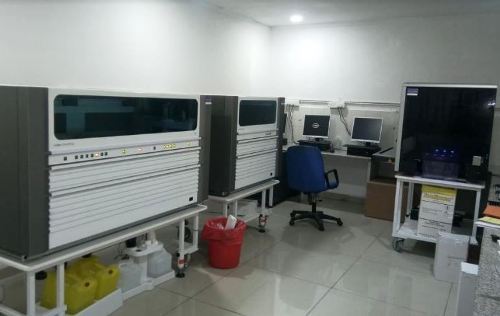
Udaipur : Geetanjali Medical College & Hospital introduces fully automated Nucleic Acid Amplification Technology (NAT) Test machine for blood bank for the first time in South Rajasthan. The technique will ensure access to “safe blood” and reduce the challenge of transfusion-transmitted infections (TTIs). This technique will help in reducing the risk of spread of diseases like AIDS, Hepatitis B & C through transfusion of blood & its components.
A panel of experts including Dr. Narendra Mogra, Medical Superintendent & Dr. M L Gupta, HoD Pathology opined that NAT is an additional blood safety measure in addition to ELISA screening method as it directly detects the genetic material (RNA & DNA) of the infecting organism or viruses namely HIV, Hepatitis B and Hepatitis C in reducing their window periods.
“NAT is the most sensitive technique for detection of triple H infections in the donated blood. The window period, the time between when a patient is infected and when they show up as positive by the routine mandatory antigen/antibody tests is shortened. Incidence of TTIs will be reduced by NAT with the window period coming down,” said Dr. M L Gupta.
“It becomes absolutely important to have mandatory blood screening through advanced techniques like NAT, in addition to ELISA testing, while encouraging voluntary blood donations since about 70% blood donations come through a replacement or from family donors in most parts of Rajasthan. It is observed that the rate of infections is higher in replacement donors. They come for transfusion for an existing ailment, and go back with another,” he said.
“Most blood banks, hospitals and transfusion centers use ELISA as a standard test to detect HIV, HBsAg & HCV viral infections. NAT along with conventional serological testing can reduce the risk to a great extent because it involves highly specific elements with much higher sensitivity. This test finds RNA / DNA in plasma infected with the virus. The test may become positive within few days of exposure as the window period is reduced,” said Dr. Mogra.

